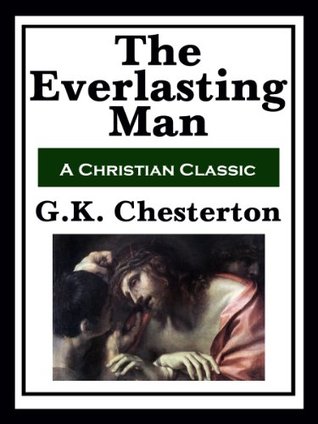More on this book
Community
Kindle Notes & Highlights
But there is a deeper fallacy besides this obvious fact; that men need not live for food merely because they cannot live without food The truth is that the thing most present to the mind of man is not the economic machinery necessary to his existence; but rather that existence itself; the world which he sees when he wakes every morning and the nature of his general position in it. There is something that is nearer to him than livelihood, and that is life. For once that he remembers exactly what work produces his wages and exactly what wages produce his meals, he reflects ten times that it is a
...more
The truth is that only men to whom the family is sacred will ever have a standard or a status by which to criticise the state. They alone can appeal to something more holy than the gods of the city; the gods of the hearth. That is why men are mystified in seeing that the same nations that are thought rigid in domesticity are also thought restless in politics, for instance the Irish and the French.
In the whole world one thing still threatened Carthage, and that was Carthage. There still remained the inner working of an element strong in all successful commercial states, and the presence of a spirit that we know. There was still the solid sense and shrewdness of the men who manage big enterprises; there was still the advice of the best financial experts; there was still business government; there was still the broad and sane outlook of practical men of affairs, and in these things could the Romans hope.
Why do men entertain this queer idea that what is sordid must always overthrow what is magnanimous; that there is some dim connection between brains and brutality, or that it does not matter if a man is dull so long as he is also mean? Why do they vaguely think of all chivalry as sentiment and all sentiment as weakness? They do it because they are, like all men, primarily inspired by religion. For them, as for all men, the first fact is their notion of the nature of things; their idea about what world they are living in. And it is their faith that the only ultimate thing is fear and therefore
...more
This highlight has been truncated due to consecutive passage length restrictions.
Of course it is in any case utterly unhistorical to talk as if the New Testament were a neatly bound book that had fallen from heaven. It is simply the selection made by the authority of the Church from a mass of early Christian literature.
When we say that they also have temples and idols and priests and periodical festivals, we simply mean that this sort of heathen is enough of a human being to admit the popular element of pomp and pictures and feasts and fairy-tales. We only mean that Pagans have more sense than Puritans.
Those runners gather impetus as they run. Ages afterwards they still speak as if something had just happened. They have not lost the speed and momentum of messengers; they have hardly lost, as it were, the wild eyes of witnesses. In the Catholic Church, which is the cohort of the message, there are still those headlong acts of holiness that speak of something rapid and recent; a self-sacrifice that startles the world like a suicide. But it is not a suicide; it is not pessimistic; it is still as optimistic as St. Francis of the flowers and birds. It is newer in spirit than the newest schools of
...more


